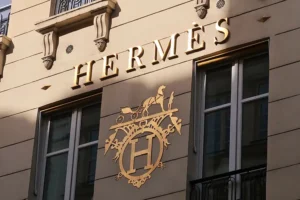Hermès dethroning LVMH as the world’s most valuable luxury company signals a new luxury paradigm for several reasons:

Shift in Consumer Behavior and Market Dynamics
– Changing Consumer Demographics: The rise of Gen Z as a critical luxury clientele is a significant factor. This generation has different expectations from luxury brands, focusing on personalized clienteling, immersive brand experiences, and authentic, emotionally resonant customer service. Hermès has been more successful in catering to these new expectations.
– Pricing Strategy and Value Perception: Hermès has shown notable restraint in price increases, which has preserved an aura of fairness in the eyes of clients. In contrast, LVMH brands like Dior and Louis Vuitton, which led the charge in portfolio-wide price hikes over the last few years, are now facing a perception of being overpriced among younger, wealthy, digitally native consumers.
Business Strategy and Operational Focus
– Scarcity and Craftsmanship: Hermès’ unwavering commitment to scarcity, reflected in its meticulously controlled supply, limited editions, and deliberate refusal to chase volume on some of its most iconic bags, has created an ecosystem where demand consistently outpaces supply. This strategy of maintaining exclusivity and focusing on extreme craftsmanship resonates strongly with luxury consumers in the current market.
– Resilience in Uncertain Times: Hermès is seen as more resilient in uncertain economic environments. Its wealthier client base allows it to better weather industry downturns compared to LVMH, which has a larger exposure to the lower end of the luxury spectrum.
Market and Investor Sentiment
– Investor Confidence: The market’s reaction to LVMH’s disappointing first-quarter sales and its impact on investor sentiment highlights the shifting dynamics. Investors are now more cautious and are looking for brands that can demonstrate stability and growth in challenging times, which Hermès has managed to do.
– Long-term Performance: While market valuations can fluctuate, Hermès’ consistent performance and its ability to attract buyers even when other prominent players are struggling indicate a stronger long-term position in the luxury market.
Broader Industry Implications
– Redefining Luxury: This shift signals that the rules of luxury are being rewritten. Scarcity, fairness in pricing, and emotional desirability are becoming the new currencies of extreme value. Luxury brands will need to focus more on these aspects to remain relevant and competitive.
– Need for Evolution: Even the most established luxury players, like LVMH, must constantly evolve to meet the changing expectations of consumers. The industry will increasingly reward those who can master the art of inspiring clients authentically and consistently at every touchpoint.

